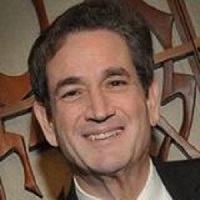By Rabbi Ben Kamin

ENCINITAS, California — After its improbable opening day last season in Australia, baseball will debut year this in the appropriately Midwestern locale of Chicago’s Wrigley Field. Cubs fans will be sanguine for a week or two. Like the clinging vines of that old ballyard, America will be green with hope.
The All Star Game will be played this July in the birth-city of professional baseball, Cincinnati — at the Great American Ballpark. Players and fans will blink through humidity and tradition; blizzards and ice storms long forgotten in favor of rosin bags and bullpens.
Meanwhile, the game is dotted with remarkable Japanese talent, powered by heavy-shouldered Latin sluggers, and suffers from a dearth of African-American players. But the outfield is still a verdant pasture of renewal.
Bart Giamatti, the Yale president who became the short-lived commissioner of baseball in 1989 (as well as its laureate), spoke and wrote lyrically of the game’s enduring magic and bucolic hold on the American imagination. Unlike other kinds of playing fields, he saw a ballpark as “an enclosed, green place” that can draw us to “the condition of paradise.”
We older fans remember true green spaces with names like Crosley, Forbes, and Candlestick. We suffered through synthetic turf facades (with migraine-inducing color uniforms) that have since been replaced by “retro” true meadows once again inhabiting the urban center, almost in contrition and surely without the hastily erased gridiron lines of football. We now smile to ourselves. We know that the game of baseball, coming around in solar relief again, is bigger than the sum of its players, no matter who’s on the field or who is suspended.
Baseball is a national thread of reminiscence that links generations, and it will endure, even if some of the players in question do not. I love the game because, no matter how it changes, it remains the same. It persists, in each glorious still moment, a breeze-kissed frame of time between the winding-up ceremonials of one pitcher staring into the chamber of a catcher’s beaten mitt while a jaw-clenched batter waits in both tribute and hunger.
Baseball turns us all into storytellers. Mothers and fathers share the chronicles of a solar game not stopped by a clock or a penalty. They tell their kids about a game whose coordinates are measured not in yards but in yarns. They measure generations by an enterprise so knowing that a man’s constant goal is to simply come home — or offer himself as a sacrifice.
I don’t remember all the details about my daughters’ academic graduations, though I surely cherish those milestones. But I do vividly recall driving them through the woods of New York state, far off the thruway and thick into “Hawkeye country” and on to Cooperstown. The Baseball Hall of Fame drew us, like a magnet of legends, numbers, and summer anecdotes.
Oral histories were being woven and rewoven by brothers and sisters, by mothers and grandfathers. Cheerful guides in shiny red blazers directed us to famous baseballs and eternal plaques. If only my own immigrant Dad could have been there, I thought to myself. How dashing he’d be in one of those sport coats, his pulse maintained by runs, bases, hits, and “where they stand.”
It’s the game itself that fills our summers. Baseball is in the blood. Baseball is memory.
*
Rabbi Kamin is an author and freelance writer based in the San Diego suburb of Encinitas. You may comment to him at ben.kamin@sdjewishworld.com, or share your thoughts with our readership, per below.
__________________________________________________________________
Care to comment? San Diego Jewish World is intended as a forum for the entire Jewish community, whatever your political leanings. Letters may be posted below provided they are civil, responsive to the article that prompted them, and signed with your first and last name, as well as with your city of residence. There is a limit of one letter per writer on any given day.
__________________________________________________________________